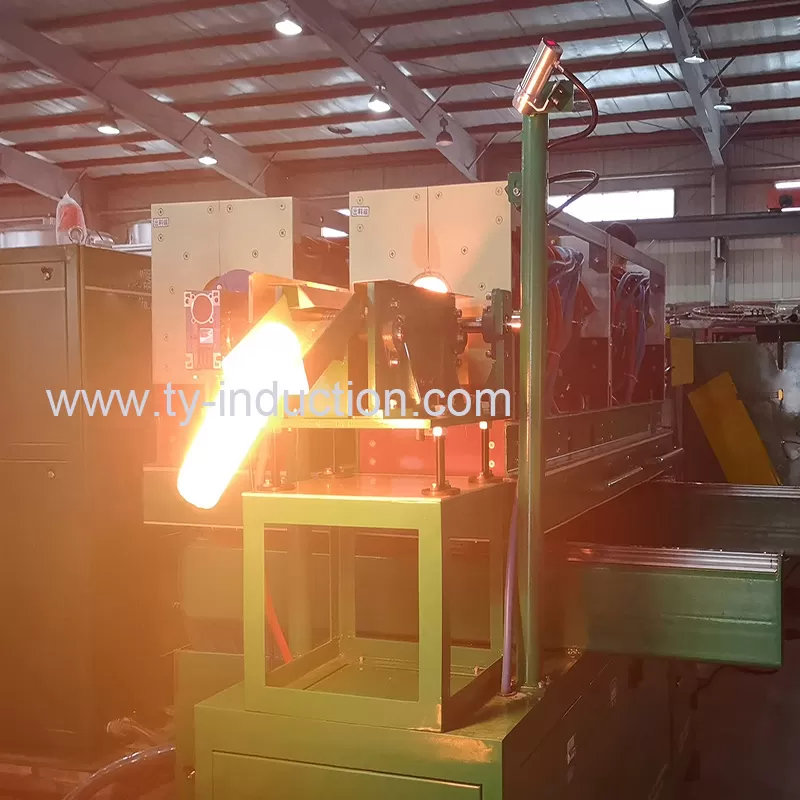How to Choose the Best Induction Forging Machine?
Induction forging machines are essential tools in modern manufacturing processes, offering precision, efficiency, and flexibility. Selecting the right machine can significantly impact your operations, ensuring enhanced productivity and reduced downtime. Below, we provide an in-depth guide on choosing the best induction forging machine for your needs.
Induction forging machines use electromagnetic induction to heat metals rapidly and efficiently before forging. This technology enables localized heating, minimizing energy waste and ensuring precise temperature control. These machines are commonly used in industries such as automotive, aerospace, construction, and energy production.
Key Factors to Consider When Choosing an Induction Forging Machine
1. Material Compatibility
Different metals require specific temperature ranges and heating profiles. Before selecting a machine, determine the types of materials you will work with, such as:
Steel and stainless steel: Require high temperatures and consistent heat distribution.
Aluminum: Needs rapid heating with precise control to avoid overheating.
Titanium and alloys: Often demand specialized induction systems for uniform heating.
Ensure that the machine you choose supports the materials and applications your industry requires.
2. Heating Capacity and Power Output
The heating capacity and power output of an induction forging machine determine its ability to handle different workloads. Look for:
Power rating (kW): A higher rating translates to faster heating and improved efficiency.
Frequency range: High-frequency machines are ideal for small, precise components, while low-frequency systems are suited for larger, bulkier items.
Duty cycle: Ensure the machine can operate continuously for extended periods without overheating.
3. Control System and Automation
Modern induction forging machines are equipped with advanced control systems for better precision and ease of use. Consider:
Programmable logic controllers (PLCs): Allow automation of heating cycles.
Temperature monitoring systems: Ensure precise heat application and minimize waste.
Integration with production lines: Choose a machine that seamlessly integrates with your existing workflow for optimal efficiency.
4. Machine Size and Installation
The physical size and installation requirements of the machine are crucial. Consider:
Available space: Measure your workspace to ensure the machine fits comfortably.
Mobility: Some machines are portable, while others require fixed installation.
Infrastructure requirements: Check for power supply, cooling systems, and ventilation needs.
5. Energy Efficiency
Energy-efficient machines reduce operational costs and environmental impact. Look for features such as:
Optimized coil designs to minimize energy loss.
High-efficiency inverters that convert power effectively.
Energy-saving modes that reduce consumption during idle times.
6. Safety Features
Safety should never be compromised. Opt for machines with:
Overheat protection to prevent damage during extended use.
Emergency stop buttons for quick shutdowns in case of malfunction.
Shielding and insulation to protect operators from electromagnetic exposure.
7. Cost and Maintenance
While initial costs are important, consider the total cost of ownership (TCO), including maintenance and operational expenses. Evaluate:
Durability: Invest in a machine built from high-quality components.
Service support: Check for available maintenance services and spare parts.
Warranty: Choose machines with comprehensive warranties for added security.
nge of metals and applications.
Conclusion
Choosing the right induction forging machine is a critical decision that requires careful evaluation of factors like material compatibility, power output, control features, and cost. By investing in a high-quality machine tailored to your specific needs, you can enhance operational efficiency, reduce downtime, and achieve superior product quality.
For more information please contact TY-induction
- 0


